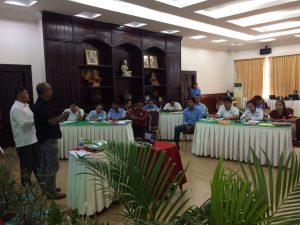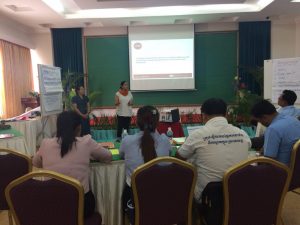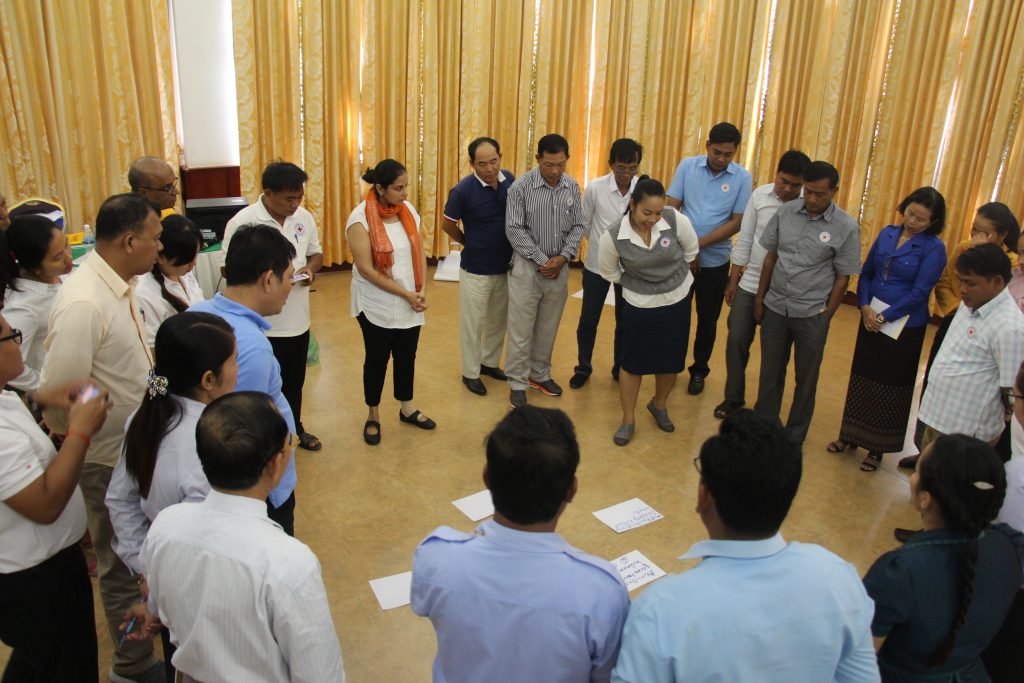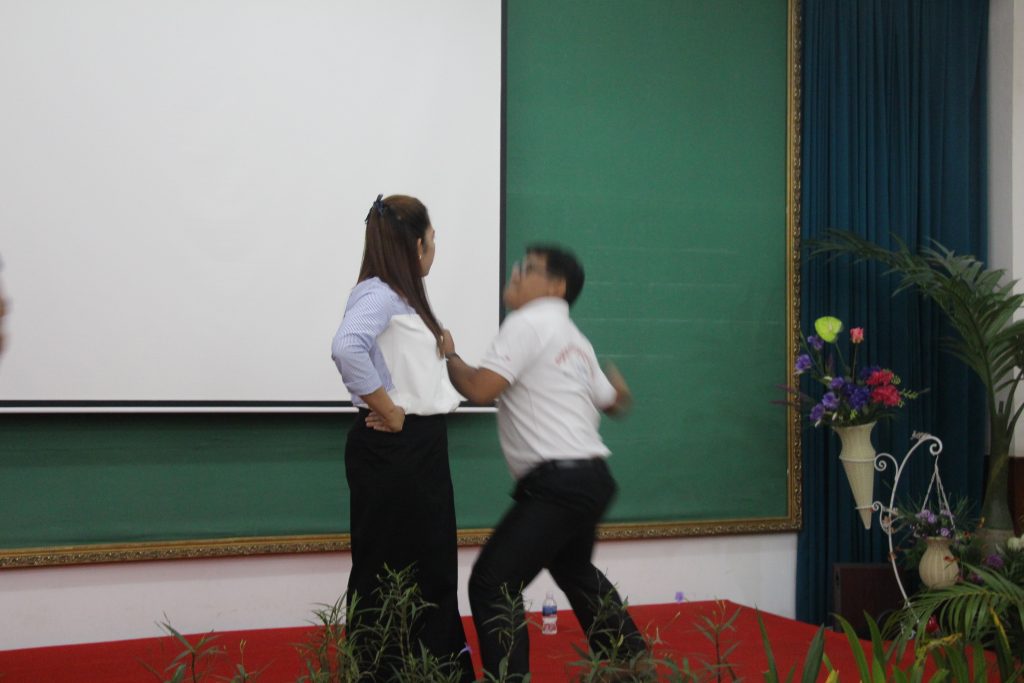
- This event has passed.
Violence Prevention Integration into CBHFA Training | 12-14 December 2017 | Kampot, Cambodia
12 December , 2017 - 14 December , 2017
Gender Based Violence (GBV) is a pressing problem not only because it violates human rights, but also because it poses a challenge to public health and economic and social development.
GBV in Cambodia remains a significant issue and is a result of gender inequality and traditional gender norms existing within Cambodia’s societal structure. Gender inequalities are also reflected in sexual relationship where females are not given equal opportunities in decision making.
Following the research study by the Ministry of Women Affair, the Cambodia Gender Assessment 2014 has shown that out of 417 men 22 percent of them had experience physical violence in the past year and 25 percent had experience physical or sexual violence in their life time. In 2013, out of 1,831 men and women’s violence, it was found that 35 percent of every male partner had use physical or sexual violence against an intimate partner.
Rape and sexual violence is perpetrated by family members, acquaintances and sometime strangers, and it often occurs in home, school, workplace, and in the community. There are limited studies in Cambodia with robust data reported by victims of rape and sexual violence. Rape is typically an under-reported crime.
The Cambodia violence against children survey showed that more than 50 percent of both men and women experience at least one incident of physical violence prior to age 18.
The Cambodian Constitution enshrines the right of all Cambodians to life, personal freedom, and security (article 42), and guarantees that there shall be no physical abuse of any individual (article 38).
Guided by 2011-2020 strategy, the Cambodian Red Cross (CRC) has conducted various initiatives with a focus on (community-based) women’s and children’s health, with an emphasis on giving supports to mother and newborns, and assisting orphans with HIV/AIDs. In addition, CRC has a long history of addressing gender and diversity concern through its vulnerable group assistance programs which provide support to people with disabilities, orphanages, the elderly, people living with HIV/AIDs, and widows.
 In order to further promote this gender and diversity initiative, CRC currently builds on existing gender policy, which was enacted since 2003, to be the comprehensive gender and diversity policy through consultative review with technical expert from IFRC, Ministry of Women Affair, and CRC leadership including department directors/deputy directors/managers as well as directors and deputy directors from all 25 CRC branches. The policy was finally endorsed and disseminated to all 25 Red Cross branches during the training of trainer on gender and diversity held in December 2016 last year.
In order to further promote this gender and diversity initiative, CRC currently builds on existing gender policy, which was enacted since 2003, to be the comprehensive gender and diversity policy through consultative review with technical expert from IFRC, Ministry of Women Affair, and CRC leadership including department directors/deputy directors/managers as well as directors and deputy directors from all 25 CRC branches. The policy was finally endorsed and disseminated to all 25 Red Cross branches during the training of trainer on gender and diversity held in December 2016 last year.
To bring up this initiative forward, and as an auxiliary to the Royal Government of Cambodia, CRC conducted the training on violence prevention integration into CBHFA to selected CRC program staff and branches during 13-14 December 2017 in Kampot Province. The training provided a broader picture of violence root cause, impact, and prevention mechanism to all participants that can be used to mainstream or integrate in their program, branch development work, and in other disseminating activities.
Objective
- Build the knowledge/capacity/skill of selected CRC-NHQ/branch/program staff in the field on violence prevention and response module, and ensure participant can train their RC volunteers on how to answer tricky questions and deliver related key message persuasively
- Introduce tools/guideline/framework and learn experience/lesson learnt/mechanism related from relevance ministries/organization.
- Understand how to effectively mainstream violence prevention and respond into CRC’s programming/activities and identify the opportunities it brings.
Supporting documents:
- Concept note
- Agenda
- Training report
- Dignity, Access, Participation, and Safety (DAPS) Framework [Khmer version]
![]()



